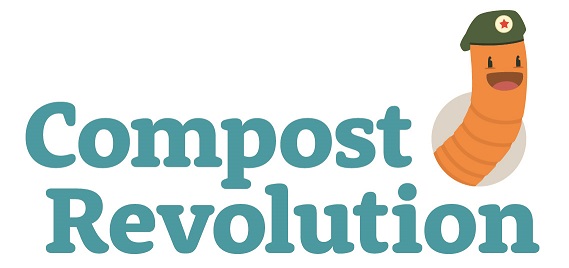Composting & worm farms
Did you know? The average household rubbish bin contains 40% organic waste - mainly food scraps that currently get disposed through landfill. Worm farming or composting is a simple way to reuse your food scraps to produce a nutrient rich fertilizer for your garden and reduce waste going to landfill.

Why reduce waste to landfill? Reducing organic waste going to landfill, helps improve our environment, by reducing greenhouse gases associated with waste decomposing in landfill.
Choosing a system that works for you
It's important to choose a system that works for your household. Compost bins are often a better option if you live in a house with a garden as they can take most food scraps, garden prunings and leaf-litter. Whereas worm farms are limited to some fruit and vegetables and also as they are compact thus making them great if you live in an apartment (as they don't need garden waste, just food scraps).
Downloads:
Setting up your compost bin
Through the Compost Revolution program, residents are entitled to a compost bin or a tumbling system.
Begin your compost bin a mixture of carbon (dry) and nitrogen (wet) materials with a 3:1 ratio, dry to wet materials:
- Start the pile or place the bin in a well-drained, sunny area with a 10-15cm layer of twigs, leaves, loose soil or other coarse yard trimmings (for aeration and drainage)
- CARBON (DRY) = dry leaves, pieces of paper and cardboard, vacuum cleaner lint, hay and straw, dried out grass clippings (1-2 days in the sun)
- NITROGEN (WET) = fresh grass clippings, tea bags, coffee grounds, fruit and vegetable scraps, manure
- Add material to your compost until the heap or bin is full. If you're composting food scraps, mix them with garden waste when adding them to the pile.
- In dry weather, sprinkle water on the pile, but don't let it get too wet.
- Turn the pile every few weeks with a pitchfork to circulate air and distribute moisture evenly.
- Don't be surprised by the heat of the pile or if you see worms, both of which are part of the decomposition process
Please note: It's not a good idea to compost meats, dairy foods, or any fats, oil, or grease, as they can attract pests.
Setting up your worm-farm
A worm farm is a good way to use your fruit and vegetable scraps instead of sending them to landfill. Worms turn organic matter into rich plant food (vermicompost) and worm juice, which can be used in the garden or to feed your pot plants.
Getting started with your worm-farm:
- Worm-bedding- can be made using a variety of materials such as compost, leaves and shredded paper; alternatively use coconut husks.
- Add 500-1000 worms and spread them
- Start feeding your worms-food scraps like-fruit and vegetable scraps, tea leaves/bags and coffee beans, crushed egg shells, vacuum cleaner dust.
- Ensure you have a liquid catchment base to capture the nutrient rich worm juice.
- Once the bedding is broken down, its time to harvest your vermicompost and start new bedding allowing the worms to migrate to the new bedding.
Worms don't like: onions, garlic, shallots, citrus fruit and chillies, meat, dairy foods and fatty foods
Get a discounted compost bin or worm-farm
Randwick City Council is a partner in the Compost Revolution, which means residents are entitled to a discounted compost bin or worm farm and can attend workshops to gain hands-on experience on starting and managing composting systems and worm farms. To order equipment, simply complete the quick tutorial and quiz via the Compost Revolution today. Workshops are held throughout the year and can be found on the What’s On page.




